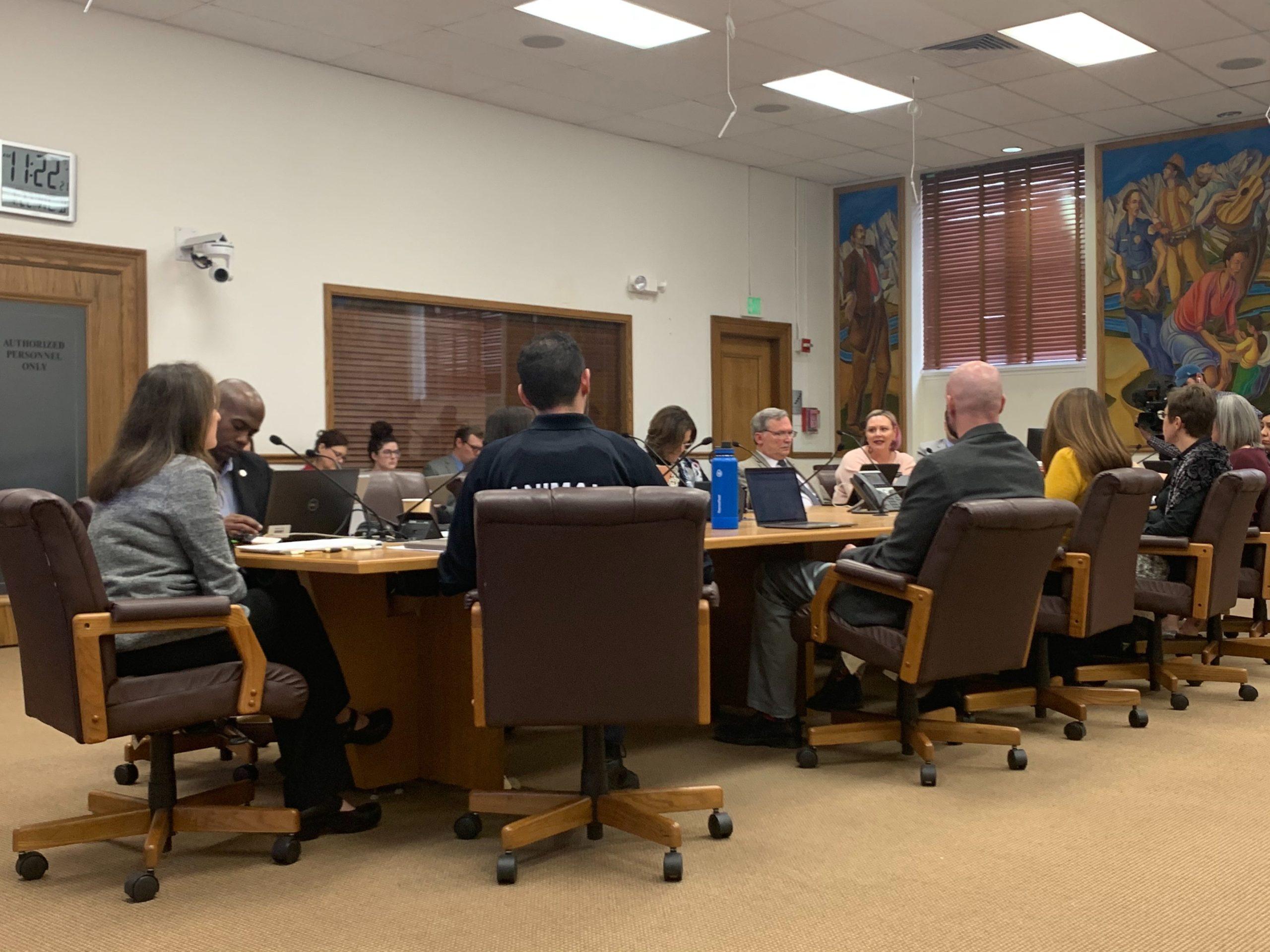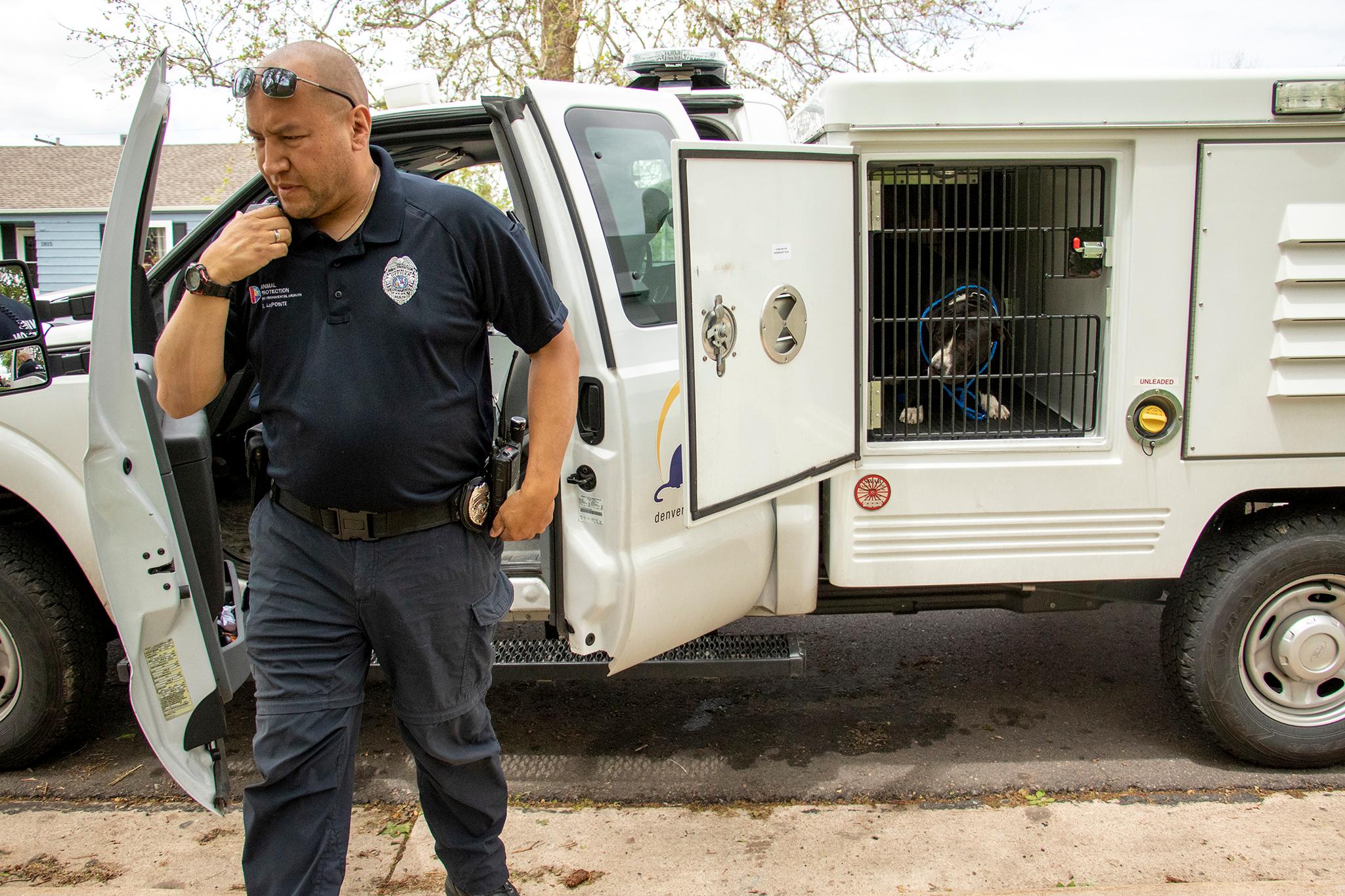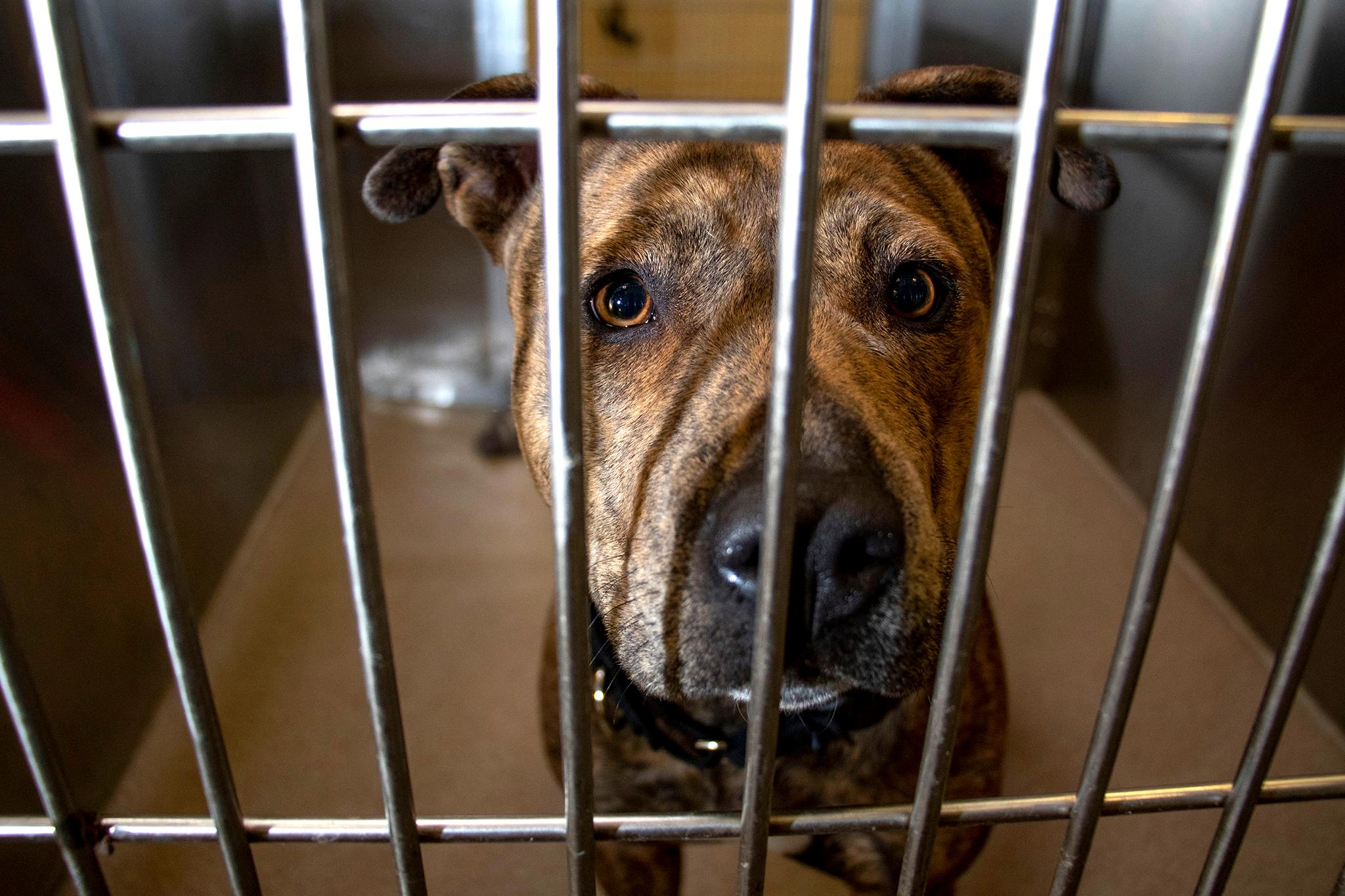The city on Wednesday inched closer to loosening its ban on pit bulls when a Denver City Council committee unanimously agreed to advance a bill allowing the dogs to be lawfully registered.
The council's safety committee voted to forward the bill to the full body for a vote after a roughly 90-minute discussion. The bill, proposed by Councilman Chris Herndon, would allow pit bull owners to register their dogs with the city by obtaining a special license. If the bill becomes law, it would not repeal the pit bull ban, which has been in place since 1989 after a minister was mauled and a boy was killed.
Herndon has called the ban a middle ground for allowing the dogs.
"Pit bull" is a colloquial term used to describe a number of dogs. Denver's law defines pit bulls as an American Pit Bull Terrier, American Staffordshire Terrier, Staffordshire Bull Terrier, or "any dog displaying the majority of physical traits of any one or more" of these breeds.
Committee chairperson Councilman Paul Kashmann said the bill would essentially overturn the city's ban. It would allow dogs to be registered with some restrictions and require the dogs to be registered annually. If the dog doesn't have any violations after 36 months, they can have some of those restrictions removed and get a regular license like any other dog. A fee for the special license has not yet been set.
"This is a major change that I think deserves the consideration that it's getting," Kashmann said.
The meeting included 11 council members, an unusually high number for a committee meeting (only 6 of them are on the committee and voted Wednesday).

Councilmembers wanted to know whether the city would be able to enforce the registration requirement and wondered if residents would comply with the new law, given that most pet owners don't follow current law requiring dogs to be registered. Denver Animal Protection director Alice Nightengale estimated more than 100,000 dogs in the city. About 20 percent of them are licensed, she said. She and her staff are having internal discussions about how they will approach enforcing this proposal if it passes.
"I think that's another driving force in this," Councilwoman Amanda Sandoval, a committee member, said. "We're expecting people to follow the rules and I don't think people follow the rules that are already established."
Herndon's goal is to provide information to the Council about registered dogs after five years. After that period, he said officials can consider the findings and potentially make additional changes to the law.
The city government gets hundreds of calls every year about pit bulls.
Denver Animal Protection Lieutenant Josh Rolfe, whose agency would be responsible for enforcing the ban, said they've gotten 2,200 calls over a four-year period from people calling about suspected pit bulls. But these are not necessarily calls about dangerous situations.
"We're knocking on doors for a pet that's essentially not causing problems," Rolfe said.
Nightengale said three zip codes -- 80219 and 80204 (west Denver) and 80239 (Montbello) -- make up half of all calls about pit bulls.
Rolfe added that about 70 percent of those calls are unfounded, meaning the dogs aren't close to being an illegal breed. Of the 30 percent of calls that end up with a dog evaluation to determine whether it's a pit bull, Rolfe said just 17 percent of those dogs are determined to be illegal.
Herndon said that passing the law would free up the agency's resources because of fewer calls about pit bulls.
Kashman rebutted, suggesting those calls would be replaced by more people calling animal control to see if dogs that look like pit bulls are properly registered.

The bill has the backing of several veterinary and animal welfare organizations. Denver Dumb Friends League President and CEO Apryl Steele said the agency received 172 pit bulls from Denver residents in the last two years. She was among veterinary professionals who said breed-specific bans don't work because a dog's breed is not a good predictor of behavior.
"Councilman Herndon's proposal is a reasonable approach to an emotional debate," Steele said.
Public comment on Wednesday included eight people who spoke about the proposal, with all but one backing Herndon's bill.
Aurora resident Sheila Mozer was the only person during the public comment who spoke against the bill. She said she has family who lives in Denver. Several years ago, she said her son, a doctor, was "scarred" after he treated a child in Georgia who had been attacked by two pit bulls.
"I am here to appeal to you as the safety committee in the city of Denver to keep in mind your main (goal) is the safety of residents," Mozer said.
Denver resident Quinn Pigot said what many others who supported the bill felt: The ban is outdated and ineffective. She said it does nothing for public safety and costs taxpayer money.
"I believe this law, as it stands, is doing a disservice to us residents," Pigot said.
The bill will now be heard by the full Denver City Council for final consideration next month.













